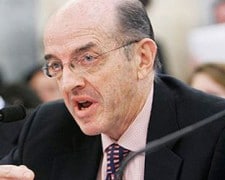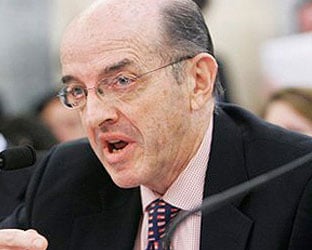 Michael Copps, the most recently-departed FCC commissioner, has outlined what should be expected of an FCC commissioner as two get set to move into their officers on the FCC’s 8th Floor.
Michael Copps, the most recently-departed FCC commissioner, has outlined what should be expected of an FCC commissioner as two get set to move into their officers on the FCC’s 8th Floor.
He started out by congratulating the newcomers, Jessica Rosenworcel and Ajit Pai, in an essay written under the auspices of the Benton Foundation. He made particular mention of Rosenworcel, who was once a member of his staff.
He said there were four things the new commissioners should keep in mind as they begin their terms.
First, they should be mindful at all times of the FCC’s goal of making sure that the public interest is being served. Copps wrote, “The statute that enables the FCC mentions the public interest, by my informal count, some 112 times. Having once worked on Capitol Hill, I operated on the premise that when Congress told me something once, I figured they were serious. When they told me 112 times, I snapped to attention. A successful Commissioner must stand up and salute the public interest.”
Second, they need to be mindful of the extreme importance of the communications sector which the FCC oversees. “In this first quarter of the Twenty-first century, America’s success, both at home and abroad, is hugely dependent upon building communications infrastructure that works for all of us.”
Third was the necessity to work as a team with the other commissioners. He expressed his confidence, based on the past actions of the sitting commissioners and the two about to be seated, that collegiality would be a prominent attribute of the new FCC.
Finally, he said they must be mindful of whom they work for – and that is the consumer. “It is first and foremost a consumer protection agency, charged with making sure that the nation’s communications resources serve the public interest. It is an independent agency, subservient to neither President nor Congress. Its Members are given significant latitude in decision-making (within the parameters of the statutes, of course) because the issues are complex, the agency’s expertise is unique, and time is usually of the essence.”





